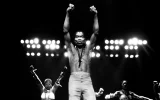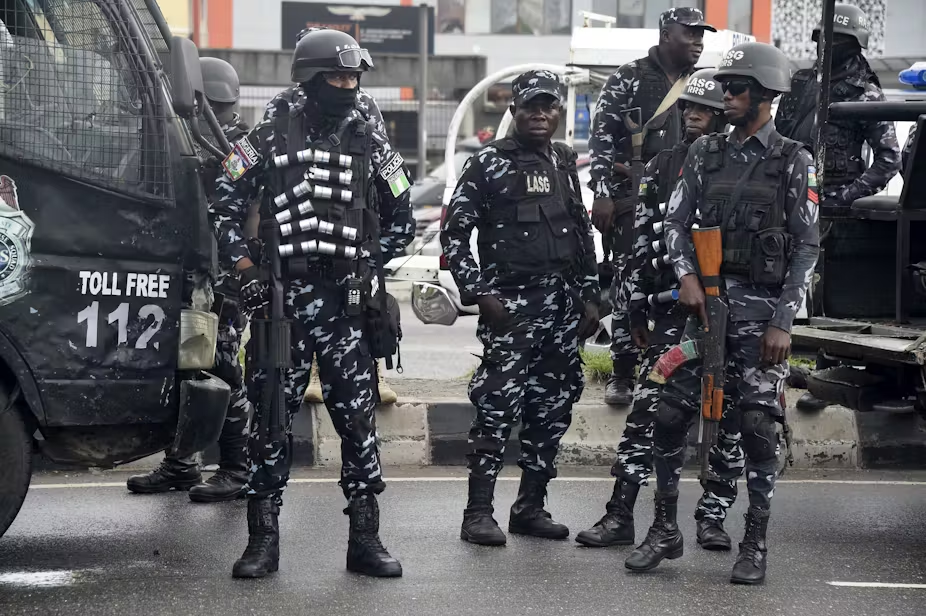by Awenlimobor Sylvester

But how long can we sustain this attitude of doling out monies to players at tournaments? By encouraging it are we not further endangering the future of our sports?
There was a time when it was an honour just playing for the Nigerian National team, when all a football player ever wanted was to adorn the green jersey and give his all solely for country. There was a time, but it appears that time is far gone. In recent times it is the financial reward that drives Nigerian players, and even while on the pitch they rarely give their all. This long-suffering quandary on financial reward and patriotism in Nigerian Football was raised by a Nigerian Football Federation (NFF) board member, Mohammed Kawo. He told reporters on Sunday January 27, 2013 “… We pay so much on players who give average performance in return. These players take the money abroad despite earning so much from their clubs. What sacrifice are they making to lift Nigeria?”
The bonus rates these days hover around $10,000 (ten thousand dollars) for a victory and $5,000 (five thousand dollars) for a draw, infact there are periods of generosity when the team are paid full victory allowances when they draw games, like only a few days back Governor Rotimi Amaechi donated $100,000 to a still winless Super Eagles team in South Africa. He further went ahead to promise more financial largesse from Mr. Dangote should the team win its final group game and permutations favor its progression to the quarter-final stage. There are no records of financial rewards for the Cape Verdean players, yet they have made it to the Quarter finals at the first asking, and this puts a big question mark on the actions of Gov. Amaechi and the money-spending corporations.
Placing value on monetising patriotism has opened the door wide for corruption to seep into the Soccer structure of Nigeria uncontrolled. 1994 African Nations Cup (AFCON) winning coach of Nigeria, Clemens Westerhof, once declared that Nigerian players now pay coaches to feature for the National team, of course this is akin to paying an employer a one time fee to gain employment in a firm where you would recoup your money a hundred times over. “We had cases where players paid $15,000 to the coach and say ‘I want to play for the national team’ and the coach would accept. They bought their way into the national team and it was an unbelievable situation. Very sad. I know these things,” Westerhof told Supersports.com November 20 last year. During the 1998 World Cup, the Nigerian team having already qualified for the knockout stage lost its last group game to Paraguay, and were rightly not paid match bonuses, but they huffed and puffed and threatened and were eventually paid by a hapless NFA, of course the team went ahead to be humiliated by Denmark in the next round.
In its October 21, 2011 editorial, ThisDay stated that ‘Stealing of sponsorship money, disappearance of raw cash (mostly hard currency) from office safe, intrigues and blackmail, have been some of the trademark of the nation’s football administrators. And being conscious of the fact that they are protected by FIFA’s “non interference” clause, these administrators have continued to act with impunity while, under their watch, Nigeria’s rankings in FIFA and CAF continued to nose-dive and with it our football.’ With all these visible ills one wonders why patriotism is still being monetised in the country.
In England, the UK Government would not be caught giving financial incentives to soccer players when there are roads, schools and recreational centres to be constructed? Even the players since 2007 have donated all their match bonuses and allowances to charity. It is necessary we understand that sports development can only arise from first having the infrastructure in place, the current derelict state of our Major Stadia allude to the dejection and lack of importance the government has apparently placed on soccer development in the country. We have become very used to making ‘last-minute’ preparations for tournaments, this approach has not paid off over the years, our best soccer eras (1976-1980 and 1988-1995) have arisen from studious preparations and focus on youth soccer development. The coaches under this period, Father Tiko, Otto Gloria and Clemens Westerhoff paid details on the structure of youth soccer development in the country and not on how well remunerated the players were. The players themselves were happy just to play for their country.
It is not as though financially rewarding performance is bad, infact most Human Capital developers would insist that in developing countries (Including Nigeria) it is essential to spur performance through finacial motivation, however it should not override the necessity to have a proper sports structure in place.
Adokiye Amiesimaka has been a long time advocate for youth development as a panache for reviving Nigerian soccer, recently he stated that “And as I have tried to point out on numerous occasions, the best time to discover talented players and guide them is when they are in their formative years. It does not end there. Those to guide them must themselves be properly equipped to do so. Otherwise, we may never realise our full potential.” One cannot agree more with the former green eagles player. We have a system where players are encouraged, defy all odds and pass through humiliating experiences to get to Europe, attain fame at ridiculously old ages (which they review downwards) and then when they come back, becuase they are pained by the inability of the system to have supported them through their formative years, they demand huge allowances and kingly treatment, which officials are willing to give to ensure they keep their idle jobs are football administrators.
Haruna Ilerika, a former midfielder with the green Eagles, in an interview expressed the feeling Nigerian players had then. “Then we were just playing for fun and for the love of our country. You can imagine that in our camp we always slept on double-decker beds compared to the 5-star hotels where these boys are lodged in nowadays. In those days, we were given 10 shillings a day as camp allowance. …..Had it been that I played this time around I would have bought all the houses in Lagos”. Such is the regret being expressed by a man who had brought so much soccer glory to the country just seeing how his efforts and those of his team mates appear to have been made in vain. “Look at the way all the veterans are dying now: Look at the way Sam Opone died; took at Peter Fregene, the best goalkeeper in Africa in those days, look at the way he got paralyzed and died. Look at Austin Ofokwu who captained Nigeria during the 1968 Olympic Games in Mexico: Before he died, he was ejected by his landlord in Palmgrove.” Now it is possible that the current breed of Nigerian players look at the derelict state of our heroes past and fear for their future hence their insistence on pay for performance.
But how long can we sustain this attitude of doling out monies to players at tournaments? By encouraging it are we not further endangering the future of our sports? We must as a priority focus on reviving youth sports in Nigeria, the Federal government should as a matter of priority build and maintain world class sports development centres in all 774 Local governments across the country and with the focus shifting away from our exported stars we would have players who have benefitted genuinely from the country’s sport development programmes playing for Nigeria and would hopefully not keep arm-twisting us into paying for their patriotism every time.
————————-
Op-ed pieces and contributions are the opinions of the writers only and do not represent the opinions of Y!/YNaija.












One Question: Are You a Learner?
Nicely said… I agree with you totally..
well said!